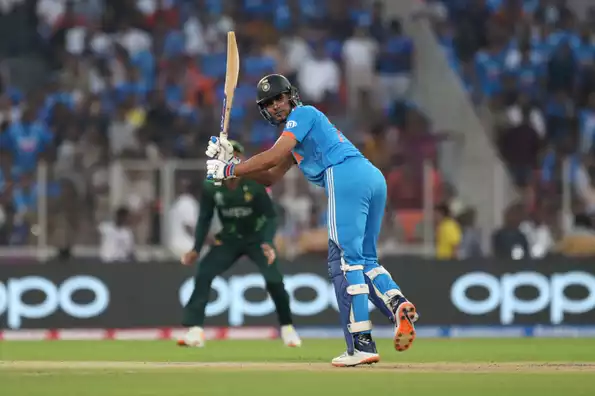Shubman Gill was genuinely 100 percent well, whereas Rohit Sharma stated that he was “99 percent” able to play the day before the match against Pakistan while having dengue. The team’s management was afraid that anything would go wrong or that the player’s fever would come back on game day. The captain had factored in a little more time because of this in case something unforeseen occurred. The final call was made on the pitch shortly before kickoff on Saturday. The club management voiced cautious optimism regarding his availability, according to Cricbuzz.
Whether he could stay on the pitch for 100 overs was Gill biggest concern. Another reason to be concerned was that he only had two days left, which were Thursday and Friday, before the game on Saturday. However, the management believed he was performing admirably in the nets. Still, the final decision was postponed until the very last moment.
The team management was satisfied with the way he was treated at the Kauvery Hospital in Chennai, where he was admitted and allowed to stay overnight, and then had a makeshift dispensary in his room with a nurse on duty twenty-four hours a day. For him to be healthy and strong, a lot of papaya was included in the diet. Dr. Sivarama Kannan treated Gill and kept an eye on his speedy recuperation and return to the field.
Young athletes usually bounce back rather rapidly. He was focused and really helpful. The doctor stated of the young Indian opener, “He followed our instructions.”He came on October 8, the evening of the cricket match between Australia and India, and departed for the hotel the next day. The male nurse had a duty to promptly bring him IV fluids and needles.
“He came to us on the second day of his ailment,” the doctor stated, outlining Gill course of treatment. We prevented him from growing more appealing. To keep the illness from getting worse, we made sure he drank a lot of water, and we gave him medicine on a daily basis to make sure his fever didn’t climb.
We decided to check him into the hospital after his platelet count dropped to less than 50,000–60,000. This happened during the Australia vs. India game. We returned him to the motel on Monday night after we noticed a big increase in his platelet count, which had dropped the day before.”
When the platelet count increased to beyond 100,000, Dr. Kannan—who also happens to be the physician for N Srinivasan, the former chairman of the Board of Control for Cricket in India (BCCI)—made the decision to release him. “His platelet count rose the next day, Tuesday, October 10, and it kept rising the day after that. By Wednesday morning, his count had crossed one lakh, so I gave him the go-ahead. He departed for Ahmedabad that afternoon.”
Gill managed just 16 runs off 11 balls, all of which came from boundaries, before being out to an unbelievable shot. The good news was that he did not experience any strain at all while fielding a 42.5-over Pakistani innings. Above all, he demonstrated his willingness to play, which is good news for the Indian squad.


